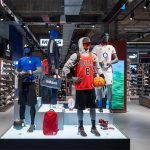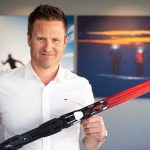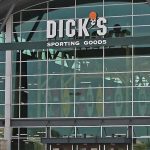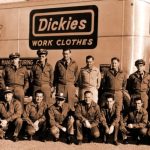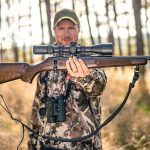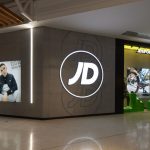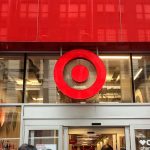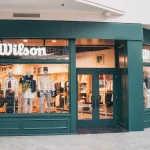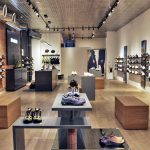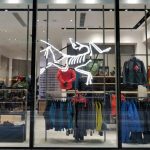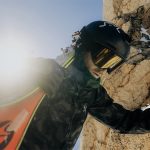The Sporting Goods Industry Hall of Fame Committee has elected four new Hall of Famers, who will be inducted next May. Sharp Lannom of DeLong Sportswear, Inc.; the late Herbert W. Markwort Sr. from Markwort Sporting Goods Co.; Mickey Newsome from Hibbett Sporting Goods, Inc.; and the late Rob Strasser, from Nike and adidas, will be honored in ceremonies Tuesday evening, May 22, during the 43rd Annual NSGA Management Conference & 9th Annual Team Dealer Summit. The Conference & Summit will be held May 20-23, 2007, at the Hyatt Regency Coconut Point Resort & Spa in Bonita Springs, Fla.
Since 1956, the sporting goods industry has honored its pioneers, innovators and leaders, and the election of the Class of 2007 brings the total number of Sporting Goods Industry Hall of Famers to 134. The Sporting Goods Industry Hall of Fame induction ceremony is co-sponsored by W.L. Gore & Associates, Inc., Mizuno USA, and New Balance Athletic Shoe, Inc.
“This years class of Hall of Famers is special because of their many noteworthy accomplishments in the sporting goods industry,” said NSGA Hall of Fame Committee Chairman Randy Ruch, CEO of Schuylkill Valley Sports, Pottstown, Pa. “Election to the Hall of Fame is the highest honor one can receive in the sporting goods industry, and these inductees meet the high standards to which all Hall of Famers are held.”
G. Sharp Lannom, IV
Sharp Lannom was born in the small town of Grinnell, Iowa, and raised on a small working farm on the edge of town. Upon graduation from Northwestern University in 1961, he appeared on the path to a life in academia, when the untimely death of his father thrust him into the position he currently holds. Sharp still quips that hes never had a promotion.
As President of DeLong Sportswear, Lannom made an indelible mark on the sporting goods industry. In the late 1960s, he pioneered mass customization and just-in-time delivery of custom product. Ever improving on customer service and operations, this culminated in DeLongs famous seven-day service, which allowed customers orders for custom garments to ship a week after receipt.
After transforming the company into a leader in supplying custom award jackets, uniforms, outerwear and caps to sporting goods and general retail companies, Sharp further improved the industry by hosting conferences for industry leaders, focusing on inventory control, marketing, and sales strategies. His business acumen has helped countless small businesses thrive and grow.
Sharp also has been a leader in community economic development and rural health care and has served at the state level in hospital governance. He has been a director of New York Stock Exchange companies in the utility industry and on the board of the SGMA.
Sharp is still active in directing DeLong into the future. He and wife Linda enjoy traveling to visit customers across the country and spending time with their eight grandchildren. When time permits, they like to ski and spend time at their northern Minnesota cabin.
Herbert W. Markwort Sr.
1917-1989
Herb Markwort was born in St. Louis and got his first taste of the sporting goods business in 1931 when he received one dollar for restringing a fellow players tennis racket. He started restringing rackets on his parents back porch, and when a neighbor asked if he had a license to do that, he got his business license the next day. All of this took place before his 15th birthday.
After graduating high school in 1935, he opened his first retail store, but had great difficulty getting brand name merchandise, since major vendors wouldnt sell to the new kid on the block. Many wouldnt even return his calls. He persisted by contacting secondary vendors and decided to start his own brand. The “Markwort Green Flash” tennis racket was the young companys first branded product, followed soon thereafter by the “Markwort Pro-Line” model.
While studying civil engineering in college, he kept working his retail store and persisting to find vendors who would sell his growing business. Herb did not return to college for his junior year and devoted his full attention to his retail tennis business. He also started running the tennis pro shop at Triple A Club, giving him two locations from which to sell.
After the war, Herb moved the retail operation to larger quarters and started wholesaling sporting goods, and in 1947, the wholesale business moved to a separate building. The first wholesale catalog 32 pages was published in 1947.
The wholesale business continued to grow, and Herb was able to buy almost any line except firearms and ammunition. He had six sales reps covering accounts in a 200-mile radius of St. Louis. In the 1950s, even more categories were added, and the wholesale catalog grew to hundreds of pages. In 1957, the competition that had the firearms business locked up in St. Louis went bankrupt, and Markwort finally got the gun lines it had sought.
The companys export business began in 1978, when a group of German buyers at a trade show asked for Herbs help to buy American Products. The next year, he started visiting European trade shows and increasing the import business with additional lines.
Herb died December 27, 1989, but not before seeing his hard work turn the company into an important part of the sporting goods industry. Among his many activities was as president of the National Association of Sporting Goods Wholesalers in 1966-67. In 1964, Markwort won Sporting Goods Dealers Leadership Award.
Mickey Newsome
Mickey Newsome started in sporting goods in 1958 with Dixie Sporting Goods of Birmingham, Ala., where he worked part time from 1958 through 1962 while attending Samford University in Birmingham. After graduation, Newsome became an outside school salesman for Dixie Sporting Goods, covering northeast Alabama.
Two years later, he went to work as an outside salesman with Hibbett Sporting Goods, who was in the process of opening a second store in Huntsville. Newsome worked as an outside salesman for Hibbett for two years, and when Hibbett opened a third store in Birmingham, Newsome moved to Birmingham to be the store manager.
Newsome became Hibbett's area manager for Birmingham and south Alabama in the early 70s, after Hibbett had opened several more retail stores in the area. In 1981, Newsome became the President of Hibbett Sporting Goods, Inc., which now had 16 stores. He served on the NSGA Board of Directors for seven years and was the Chairman during his last year on the Board. He was on the NSGA Hall of Fame Committee for 10 years and was Chairman for eight years, from 1998 to 2006.
In 1980 the Anderson family of Florence, Ala. acquired the company. Hibbett expanded from 13 to 75 stores over a 15-year period. Over the years, Hibbett Sports realized its “small market” concept could build the company into a top player in the sporting goods market if it could secure a large supply of capital.
In the spring of 1995, with the help of Smith Barney, Hibbett prepared a presentation to attract an equity investor. Saunders, Karp and Megrue Company of New York City partnered with Hibbett Sports later that year. The initial plan was to grow the company for 4 to 5 years and then do an initial public offering (IPO), but by the spring of 1996, it was obvious that Hibbett was in a good position to do an IPO, as it had delivered several successful quarters back to back in the midst of a hot stock market.
Though Hibbett prepared for an IPO in early summer of 1996, a cooling stock market delayed the IPO until September. The initial public offering and the three-week road show were experiences Newsome will never forget, presenting challenges from a physical, mental, and emotional standpoint. But the IPO was very successful. At the year-end Hibbett Sports was debt-free and on its way to even greater success.
When Hibbett went public in 1996, the chain had approximately 82 stores. At the end of this year, Hibbett expected to have approximately 625 stores. Sales in 1996 were approximately $83 million; in 2006 they are expected to reach approximately $500 million.
Robert J. Strasser
1947-1993
Robert J. Strasser was born in 1947 to Robert L. and Marilyn Strasser. Running a water well drilling business took the family to many remote locations in Oregon, Idaho, Alabama and more.
A graduate of Willamette University and Cal-Berkley Law School, Rob's first job was with the firm that had Nike founder Phil Knight as a client. His work in winning a lawsuit that resolved the Onitsuka Tiger-Blue Ribbon Sports dispute resulted in the creation of Nike, which brought him from outside counsel to Marketing VP at Nike.
He was instrumental in many of Nike's early marketing successes, notably the 1984 Olympics, John McEnroe campaigns, and the signing Michael Jordan.
He left Nike when the frat house atmosphere became more of a billion dollar business. He formed Sports Incorporated with his creative sidekick, Peter Moore in 1987. Together with a small crew of followers they worked on marketing ideas for many brands, including Brown Shoe, PF Flyer, and Benetton to name a few.
In 1990 they agreed to do some consulting work for adidas. They developed the concept of adidas Equipment, which did so well that adidas eventually purchased Sports Incorporated in 1993 and agreed to relocate adidas' U.S. headquarters to Portland, Ore. Tragically, Strasser died at the end of October of that year.
Many people describe his personality as larger than life; his nickname was Rolling Thunder. In his lifetime, he worked with two great brands and left a lasting impact on both of them.


